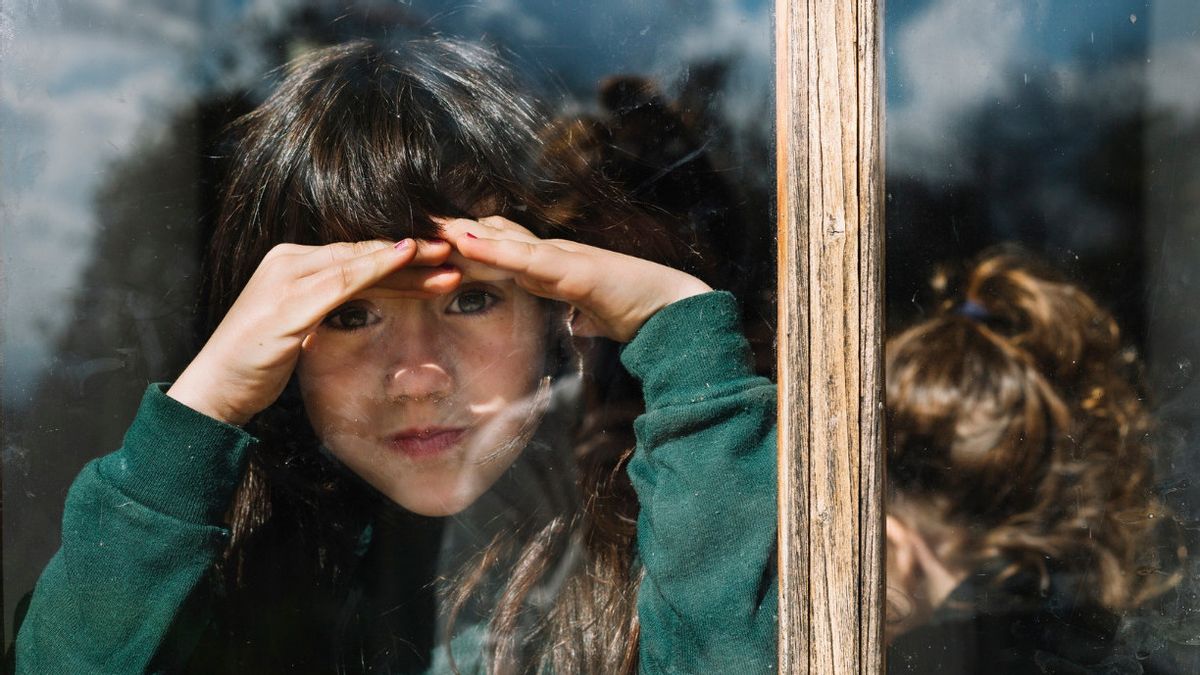YOGYAKARTA Children's introvert personalities tend to be quiet and hesitant. If your baby doesn't blame you, rarely nags, and likes to ask questions that are difficult to answer, maybe introverts.
Launching the explanation of Jenn Grenneman, teacher, author, and founder of Introvert Dear, introvert children spend a lot of time alone in their bedroom. You may also receive a warning from the school teacher so that the baby participates in class. Well, to get to know more about the characteristics of the introvert child, Grenneman gave the following explanation.
Parents need to know, as much as 30-50 percent of the United States population is introverted. This means that if your little one prefers to be silent and occasionally tells deep things, they are not alone. In fact, many leaders, entertainers, and successful entrepreneurs are introverts. Say Bill Gates, Emma Watson, Christinaquilera, and JK Rowling are also introverted.
According to the author of The Hidden Gifts of The Introvert Child, Dr. Marti Olsen Laney, the brains of introverts and extroverts are connected in a slightly different way. The introvert brain of its neurotransmitter pathway is different from that of the extrovert. Introverts are more dominant on the parasimpathic side, namely the rest' system compared to sympathetic nerves that trigger the response of opponents, run, or remain silent.
A journal in the Journal of Neuroscience found that introverts have more massive and thick gray matter in their prefrontal cortex. This is a brain area related to abstract thinking and decision-making. So introvert children tend to be quiet and careful than their extroverted peers.
Introverts often feel overwhelmed or anxious in new environments and new people. If you attend social events, don't expect introvert children to react immediately and immediately chat with other children. If possible, come early so that children have plenty of time to adapt. Other options, give children the freedom to choose a place that they think is the most comfortable.
Either introverts or extroverts will be drained of energy when socializing. But it's more gross to experience introverts. If your child is older, take them to a calmer room. If you're young, recognize signs of fatigue or known as introvert burnout.
Introvert children need to get a positive push from their parents. That is, when they are friends, give their support to take social risks. For example, 'Yesterday I saw you talking to the new kid. I know it's difficult for you, but I'm proud of what you're doing.'
Strengthening positively is a way to support children to start opening up and making friends with their peers. With positive reinforcement, children tend to be able to regulate the negative feelings they often associate with getting out of their comfort zone.
Parents need to give their children the opportunity to pursue their interests. If your child likes softball or scout, but if an introvert child likes writing classes and science camps, try to support his interests. Launching Psychology Today, Thursday, April 27, an intense involvement in an activity can bring happiness, prosperity, and confidence. Besides also giving your child the opportunity to socialize with other children who have the same interest.
Listen to your child, and ask questions to pull him out. Many introverts, both children and adults, struggle to convey thoughts and emotions that are circling inside. Citing Laney's writing, 'introverts live internally, and they need someone to pull them out'.
Without parents listening to and reflecting again, introvert children can get lost in their own minds. It's also important to know that introvert children may not ask for help. This means that parents need to be proactive in asking questions, guiding, and accompanying them independently.
VOIR éGALEMENT:
The English, Chinese, Japanese, Arabic, and French versions are automatically generated by the AI. So there may still be inaccuracies in translating, please always see Indonesian as our main language. (system supported by DigitalSiber.id)














